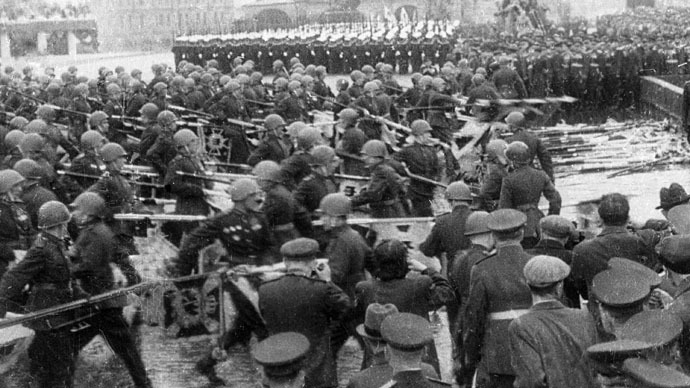The Cold War - a new phase in the age of imperialism
[Note: this is an excerpt taken from a section in an article I am currently in the process of writing and plan on getting published.]
In the early 1900’s, Vladimir Lenin realized that capitalism had entered into its globalist phase and that the age of imperialism had begun; this means that capitalism must expand beyond national borders, and that there is an internal logic to Empire-building and imperialist wars of aggression. He theorized that imperialism -- a result of capital accumulation -- and the cycle of World Wars were the products of competing national capitals between the advanced nations. As he wrote in Imperialism, the Highest Stage of Capitalism, World War I was about the competition between major imperialist powers -- such as the competing capitals of Great Britain and Germany -- over the control of and the split of plunder from colonies. And so, finance capital was the driving force behind the exploitation and colonization of the oppressed nations; these antagonisms would eventually lead to a series of World Wars as Lenin had predicted. During the First World War, the goals of the two imperial blocs of power were the acquiring, preserving, and expanding of territories considered to be strategic points and of great importance to their national economies. And leading up to World War II, protectionist measures were taken up by Britain, the United States, and France during the Great Depression to restrict the emerging industrial nations -- Germany, Italy, and Japan, also known as the Axis states -- from access to more colonies and territories, thereby restricting them from access to raw materials and markets. In particular, the two advanced capitalist industrialized powers of Germany and Japan, in their efforts to conquer new territory, threatened the economic space of Britain, U.S., and France and threatened to take their territories, colonies, and semi-colonies by force -- with Germany launching a series of aggressions in most of Europe, and Japan in Asia. WWII was essentially a reigniting of the inter-imperialist rivalry between the Anglo-French bloc and the German bloc, but with modern artillery and the significant use of aerial assaults. It was also a period of the second stage of the crisis of capitalism which saw the rise of Fascism, with the Axis states threatening to establish a world-dominating fascist regime. For the time being, WWII would be the last we would see of world wars.
At the end of WWII, two rival global powers emerged: the United States and the Soviet Union; the Cold War was a manifestation of their ideological conflict. The Cold War era was a new phase for international capital as it saw the advent of nuclear weapons and the beginning stages of proxy warfare. It was a time when the imperialist nations, regardless of which side they were on during WWII, realized that they had the common interest of stopping the spread of Communism and seeking the destruction of the Soviet Union. By extension, these anti-communist attacks would be aimed at the Soviet-allied nations as well. This was not only done to increase the number of countries to turn into client states or puppet governments who will join the NATO bloc and thus carry out U.S. interests, but also with the ultimate goal of isolating the Soviet Union. It should also be noted that the end of WWII marked the end of competing national capitals so that, now, financial capital exist globally and simultaneously, and with Washington being the world dominating force that holds monopoly over these global markets. However, there were those who actively resisted against the U.S. Empire and did not accept U.S. capital into their countries and are thus threatened with sanctions and military intervention -- such as the independent sovereign nations of Syria and North Korea who are, to this day, still challenging U.S. hegemony.

Comments
Post a Comment